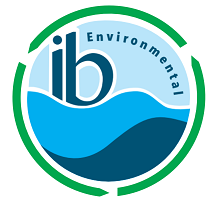For many low-income families, utility bills can be a major financial burden. Many households have to decide whether their income will allow them to run a fan, run the air conditioning unit, or neither on a hot day. There are energy efficiency resources that can help a household, but affordability of utility bills remains a significant concern, especially in the southeastern United States. This post will highlight some of the existing assistance programs to address energy bills.
Read MoreThe Department of Watershed Management (DWM) was formed to manage the City of Atlanta’s essential utility operations: drinking water, wastewater and stormwater systems. The DWM is a regional public utility covering a 650-square-mile area. The utility serves 240,780 residential customer accounts representing 1.2 million people. The water treatment capacity is over 246 million gallons per day, while wastewater treatment capacity is 170 million gallons per day. Residential customers living inside the city who consume about 4,500 gallons of water per month would have an average monthly bill of about $30.44 for water service and about $77.01 for sewer service, totaling $107.45.
Read MoreThe City of Blakely in southwest Georgia has a population of a little over 5,000. It is a full-service city, in that it provides electricity, water/sewer, garbage and gas utilities to its citizens. Each month the City bills approximately 2,600 customer accounts. A few years ago, the City learned from a neighboring utility about the option to have a customer pay in advance for utility services, and have those services automatically shut off if there are no funds left in that customer’s account. Blakely first investigated the pre-paid utility option mainly for the electricity side of their services. However, they realized that it could conveniently incorporate all of the utility services the City provided. Could this option of pre-paying for utility services benefit their low-income customers and reduce shutoffs?
Read MoreAt IB Environmental (ibE) a big part of our work involves playing the role of connecting utilities and non-profit organizations. There is much common ground for these two groups to collaborate on, for example:
Water quality watchdogs can partner with a utility to provide education through stream cleanups and citizen workshops.
Nonprofits that act as social advocates for low-income residents and seniors often partner with the local utility to administer customer assistance programs (CAPs) for the financially vulnerable, a group that these organizations know more intimately than the utility does.
But there is one area where nonprofits and water utilities can't seem to find common ground. What to do about those customers who don't pay their water bills?
Read More



